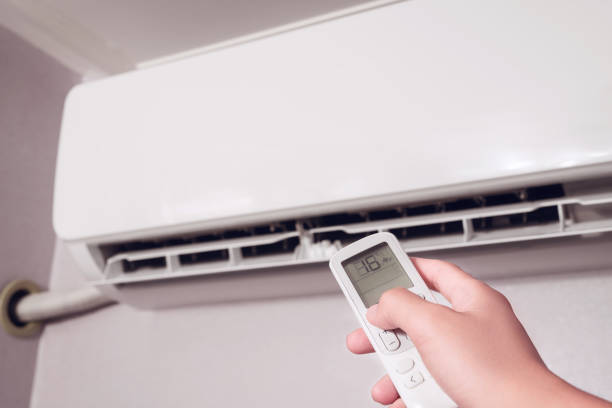The distinction between HVAC and air conditioning systems is sometimes unclear to homeowners. Many people are confused by the differences between the two. Builders and contractors may also use the terms interchangeably, further adding to the confusion.
Although the acronyms are often used interchangeably, they refer to two distinct things, and there is a clear distinction between the two sorts of units. If you need help deciding between the many cooling and heating options, www.airconservicing.org can give you a full rundown of the pros and cons of each.
What Is HVAC?
An essential first question is, “What does HVAC stand for?” Heating, Ventilation, and Air Conditioning (HVAC) is the system that controls the temperature within a building. Also, it helps with ventilation by letting excess moisture escape.
Air conditioning, heating, and ventilation systems come in a wide variety of forms and sizes, each with its own set of advantages in a variety of settings. Any number of the following can make up a unit:
- Boilers
- Central air conditioners
- Moisture ducts and exhaust vents
While air conditioners are technically HVAC equipment, not all HVAC systems function as ACs. What needs to be grasped is that it is, in fact, a more general term. Think of it as a catch-all word for a wide range of similar air-control systems. At marvellous you can find everything about HVAC and AC.
What Does an HVAC Do?
Most people are aware that heating, ventilation, and air conditioning (HVAC) systems can be used to regulate temperature and enhance air quality. Air intake, air conditioning, and air circulation are the three main functions of an HVAC system that contribute to healthy indoor air.
In most cases, a vent or duct system is used to bring in fresh air. Vents can be either large or small, depending on the size and layout of the area being conditioned. After taking in, it’s necessary to clean the air. Here is where an HVAC system’s actual work takes place.
- Dust, pollen, and other airborne particles are first filtered out.
- Then, it is chilled or heated, respectively, depending on the time of year and the current inside temperature.
- At last, a fan is used to distribute the conditioned air around the room.
The initial step in each of these operations is the installation of a thermostat to measure the ambient temperature. Set the thermostat to “cool,” and the HVAC system will draw in air from the room, cool it, and then recirculate it. On the other hand, if you switch the thermostat to “heat,” the system will draw in cool air and release warm air into the room. The objective is the same; better air quality inside the house.
What Is Air Conditioning?
Air conditioning (AC) systems are built to do just that—cool or heat the air in a given space. A contractor may refer to any device that regulates the temperature or direction of airflow as a “air conditioner” in certain contexts.
Simply put, an air conditioner is any device whose primary purpose is to clean, cool, and/or heat the air in a room. An HVAC system is any device that either heats or cools the air and expels moisture through the vents.
We must exercise caution because most modern air conditioners also provide heating; this feature, known as a “heat pump,” involves reversing the refrigeration cycle to generate heat. Heat pumps are increasingly replacing older, less efficient “wet” systems in buildings as AC units prove more reliable and cost-effective in comparison to fossil fuels.
The Difference Between Heating, Ventilating, and AirCon:
The use of air conditioning and heating, ventilation, and air conditioning (HVAC) systems is crucial to maintaining a pleasant indoor climate. Both have widespread applications in the public and private sectors, including the agricultural and industrial sectors.
Both air conditioning and heating, ventilation, and air conditioning (HVAC) systems are efficient at keeping a room at a comfortable temperature and humidity level, but they are not created equal. It’s true that HVAC systems are the standard, but air conditioning systems are typically more efficient and cost-effective. The reverse is also true; HVAC systems can be dependable and low-maintenance.
It is essential to have both air conditioning and heating, ventilation, and air conditioning (HVAC) systems installed in any building. One of the methods may be preferable to the other depending on the specifics of the room and the local environment. Knowing the distinction between the two can help you make a well-informed choice.
Choosing the best system for your home requires careful consideration of several factors. We’ve been serving the cooling and heating requirements of SWFL residents since 1998.

